purification
Teachings on practices that mitigate the force of our destructive actions, in particular on the four opponent powers. This is a four-step practice involving: 1) regretting our mistake, 2) restoring the relationship by generating a positive attitude towards the one we harmed, 3) resolving to avoid the harmful action in the future, and 4) doing some sort of remedial behavior.
Latest Posts
View all posts in Venerable Thubten Chodron's teaching archive.
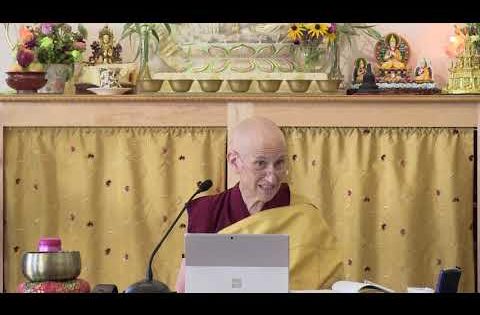
Freeing ourselves from negativity
Covering Verses 57-65 and finishes the commentary on the four opponent powers of purification and…
View Post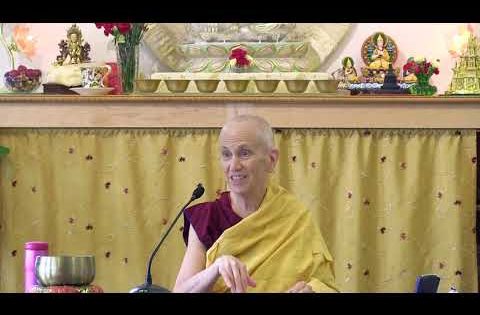
Offering ourselves to the Buddhas
Continuing the commentary on Chapter 2, Verses 42-57: covering generating regret for negativities and seeking…
View Post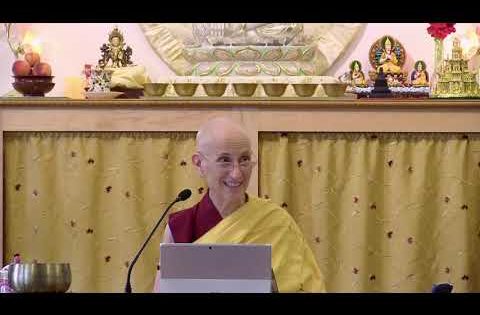
Regretting negativity by reflecting on death
Giving commentary to Verses 32-41, showing how reflecting on death can help clarify what is…
View Post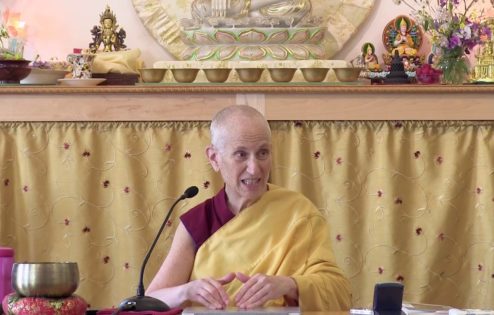
Removing barriers to forgiveness
Discussing what gets in the way of forgiving others and responsibility for our harmful actions
View Post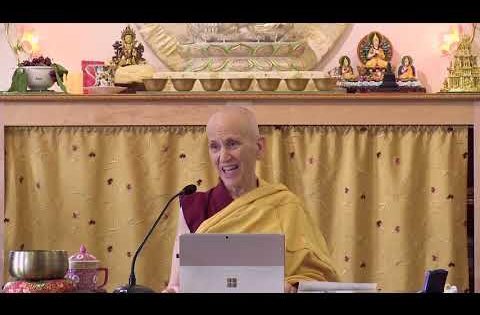
Four opponent powers
Covering Verses 2.27-2.31 on the four opponent powers of purification.
View Post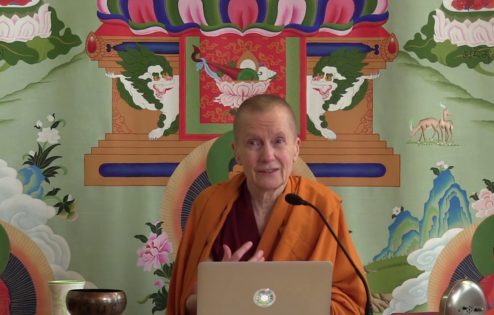
How to prepare for death
Teaching on how to prepare ourselves for death, on the five powers, and answering questions…
View Post
༄༅། །ནུབ་པ་རིག་འཛིན་གྲགས་ཀྱིས་མཛད་པའི་ཞེན་པ་བཞི་བྲལ་...
Instruction on parting from the four attachments by Nubpa Rigdzin Drak (bilingual-Tibetan/English).
View Post
Freedom from the Four Fixations
English translation of the root text containing instructions on freedom from the four fixations by…
View Post
Parting from the Four Attachments
English translation of the root text containing instructions on parting from the four attachments by…
View Post
Collective karma and negativities to confess
How to set up a practical meditation schedule, the karma we create from group participation,…
View Post
How we create negative karma
Continuing commentary on the 35 Buddha practice, discussing the varieties of ways we create negative…
View Post
Confessing ethical downfalls
How to overcome self-hatred and work with anger towards others, giving commentary to the 35…
View Post